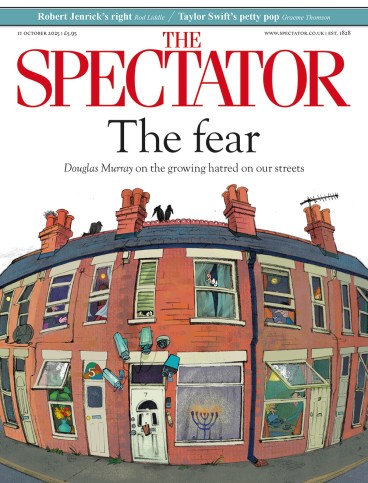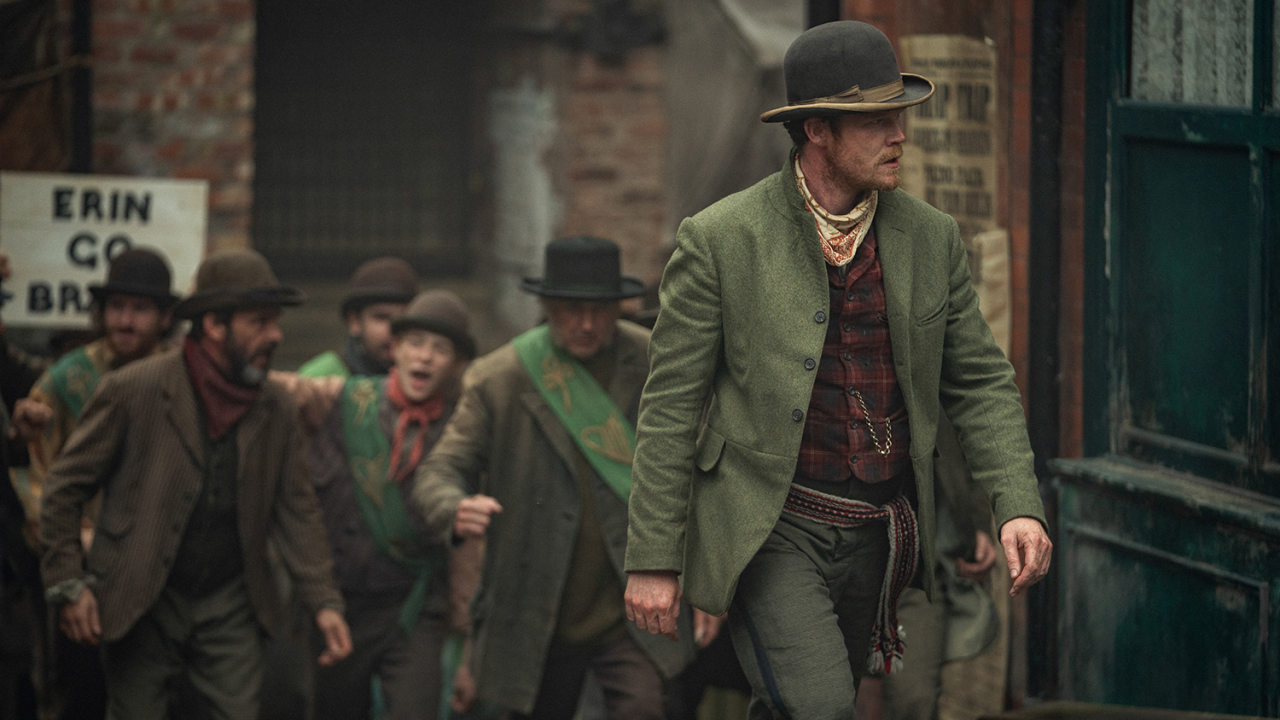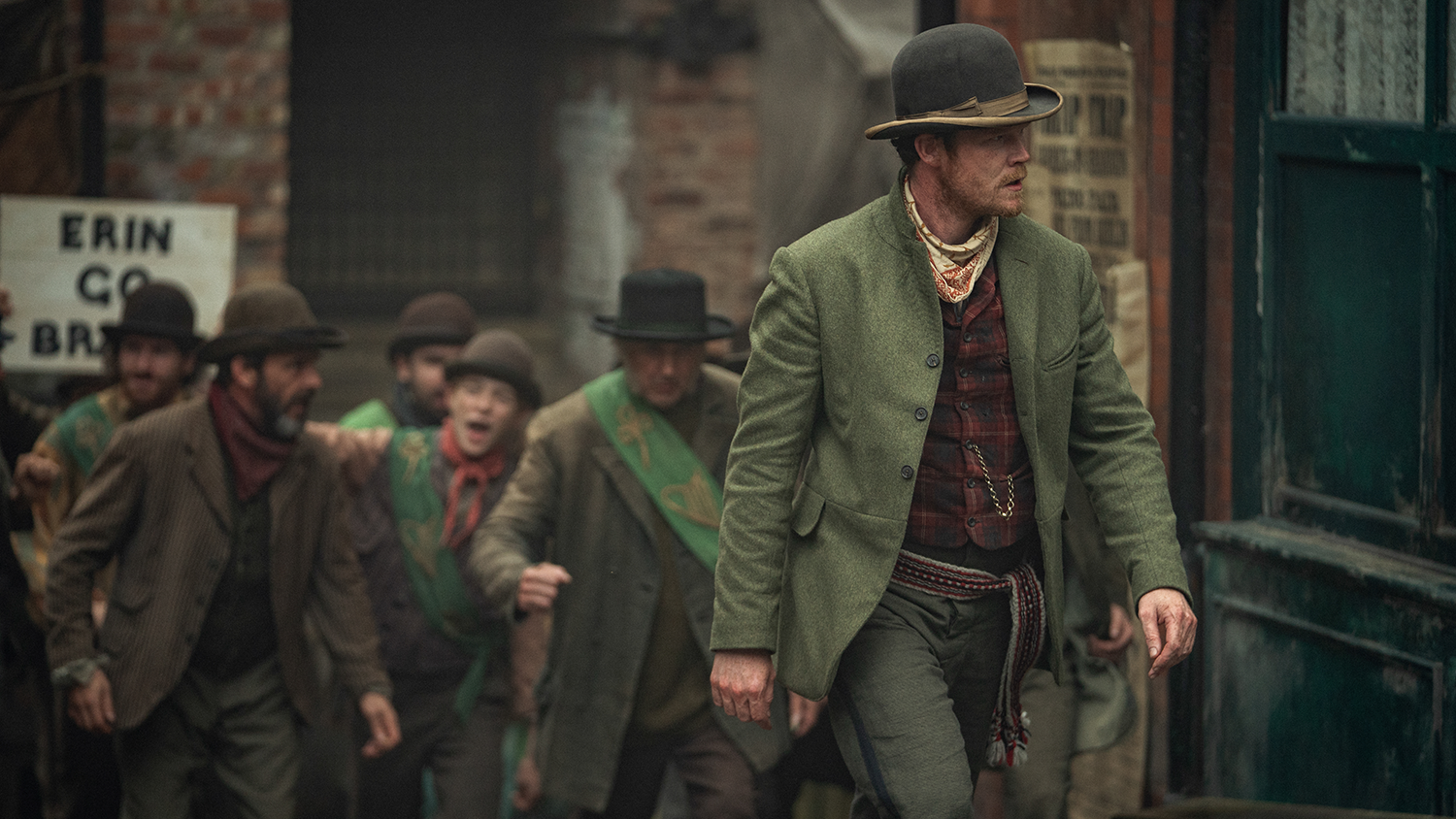
First the surprising news: not a single one of the four Guinness siblings in 1868 Dublin is black; and only 25 per cent of them – surely a record for Netflix – is gay. Now the bad: despite these oversights, House of Guinness remains very recognisably the work of Steven Knight, the Peaky Blinders screenwriter who once set a drama in 1919 Birmingham and said to himself: ‘I know just what this period needs to make it more echt: a cameo appearance by dub poet Benjamin Zephaniah.’
As a Brummie (more or less), I loathed Peaky Blinders. I hated the accents (some were OK, but too many were a melange of Liverpool, generic Northern or Irish); I hated the pornographically lush stylisation and the nasty razor violence and the fake history; but most of all I hated the fact that it made Brummies seem earnest and humourless whereas in fact we’re really funny and probably the world’s best pisstakers.
Now Knight has turned his basilisk gaze on 19th-century Ireland, with not dissimilar results. The Irish – to their credit – are livid. ‘A stunning lack of appreciation for who the Anglo-Irish were and where they fit (or didn’t) into Irish society,’ wrote the Irish Times. ‘The clichés arrive thick and fast. Put it this way: a lot of letters are crumpled up and thrown into a lot of fires,’ wrote the Irish Independent. ‘All pour, no pint’, was the headline in the Irish Examiner.
The detail that appears to have particularly got their goat is that the Fenians are all dressed cartoonishly in the sort of leprechaun outfits revellers might wear on St Patrick’s day, green bowler hats and all. They swear and drink a lot but are generally a bit useless, continually being bested by the ruthless but sexy Sean Rafferty (James Norton), the gaffer at the Guinness brewery in his raffish, low top hat. (Millinery is a key component in Knight’s oeuvre. In Peaky Blinders, you’ll remember, the gang members wore herringbone baker boy or flat caps, in whose linings they concealed their razor blades.)
‘This fiction is inspired by true stories,’ it declares at the beginning, which basically means: ‘This shit is totally made up but now we’ve warned you you’ve no right to complain.’ I do sort of admire the brazenness of this Bridgerton-like disregard for historical accuracy or verisimilitude. At the same time, though, if you’re going to exploit a recognisable brand like Guinness, is it not a bit of a swizz making up most of the details, other than they are jolly rich, they live in Ireland and make black beer with white foam on top?
It opens with the funeral of patriarch Sir Benjamin Lee Guinness, generating hopes of a thrilling Succession-like feud among his offspring. The problem is that Knight just isn’t as imaginative, supple or feline a writer as Jesse Armstrong, so his characters aren’t as nuanced, amusing or involving. There’s Arthur (Anthony Boyle): the secretly gay one; Edward (Louis Partridge), the ambitious and good at business one; Benjamin (Fionn O’Shea), the gambling, drunkard; and Anne (Emily Fairn), the only girl.
Though they’re all nice-looking and well acted, their costumes and haircuts – and in the case of Arthur in the bath scene, his splendid pecker – have to do most of the heavy lifting because the lines they are required to deliver are so uninspired. When the dialogue is merely crudely expositional this isn’t too painful. Where the sensitive viewer’s toes might start to curl, though, is when it aspires to being witty or memorable or daring.
In one excruciating scene, Arthur is visited at Iveagh House by his prospective bride in order to negotiate a ‘mariage blanc’, in which it is understood that conjugal duties will not be required. She announces, in front of an appalled aunt who is chaperoning the arrangement, ‘If an occasion arises when a smile reaches me, I want assurances that I will be at liberty to fuck and forget whomsoever I choose, so long as the servants don’t find out.’ Would an earl’s daughter, even a mere Irish earl’s daughter, have spoken this way in the 19th century?
Well, possibly, one of them might have done, at a push. But it’s not just Lady Olivia Charlotte Hedges-White who effs and blinds in this series. All the posh characters do – at least as much as the unposh ones. And for me this just doesn’t ring true. It feels like being given a crap history lesson by a woke, contrarian teacher determined to make the past relevant by showing that women were at least as empowered and feisty and highly sexed as they are today.
Still, it’s not quite as bad as King & Conqueror (BBC1) – also starring James Norton – whose final episode I tried watching to see how it handled the Battle of Hastings. Unfortunately, I could only stomach ten minutes. But let me guess: William (Nikolaj Coster-Waldau) finally won the day with his crack impi of Zulu warriors, am I right?









Comments